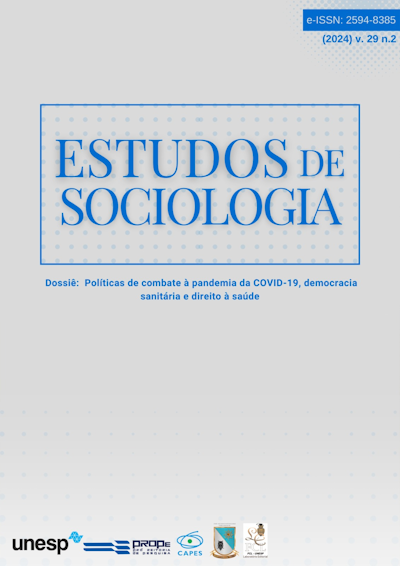Intersectionality and Covid-19
gender, race and class in quilombos and urban agglomerates in the pandemic in Minas Gerais
DOI:
https://doi.org/10.52780/res.v29i2.18993Keywords:
Quilombos, Urban clusters, Health democracy, Gender, IntersectionalityAbstract
We present a critical overview of the Covid-19 pandemic, focusing on the intersections between class, gender and race, based on the quilombola communities Córrego do Narciso and Córrego do Rocha, in the Vale do Jequitinhonha, Minas Gerais, and Cabana do Pai Tomás, an urban cluster from Belo Horizonte-MG. We seek to tension the concepts of health democracy and the right to health, based on the practices of the subjects. Based on projects that emanated from institutional networks, to confront and analyze the health context, the research operated at the confluence of popular health education and the dissemination and popularization of science, understood as promoting an in-between place of encounters. The methodology gave prominence to qualitative analysis, helping to understand the role of female leaders in actions to combat Covid-19 and its effects. Despite geographic distances, these women connect, making multiple territories linked in historical time and pandemic urgency.
Downloads
Downloads
Published
How to Cite
Issue
Section
License

À revista Estudos de Sociologia ficam reservados os direitos autorais pertinentes a todos os artigos nela publicados.
Os artigos publicados e as referências citadas na revista Estudos de Sociologia são de inteira responsabilidade de seus autores.
A Estudos de Socilogia utiliza a licença https://creativecommons.org/licenses/by/4.0/ (CC BY), que permite o compartilhamento do artigo com o reconhecimento da autoria.



